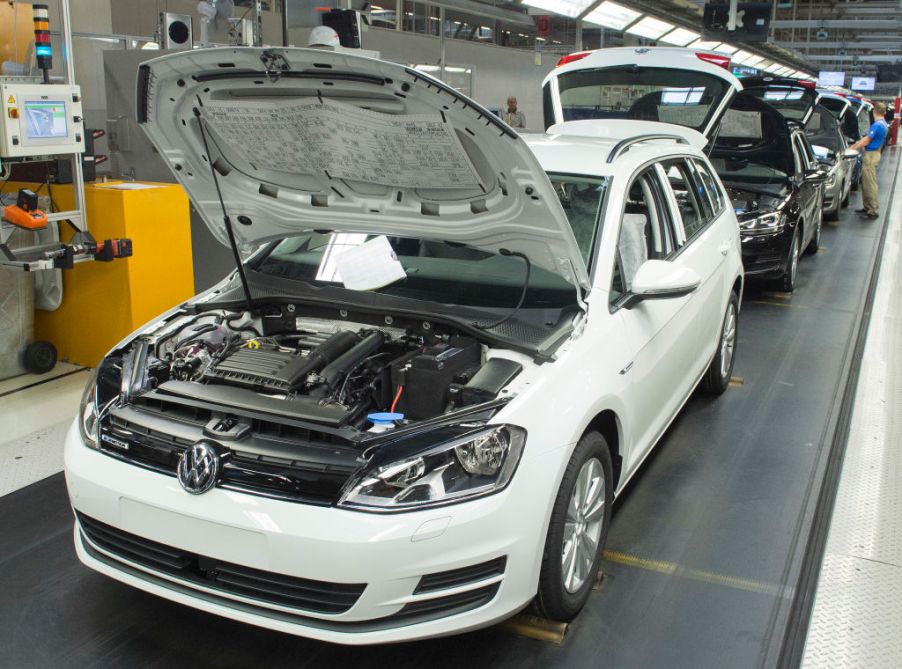
Does anyone buy Volkswagen Diesel Cars Anymore?
Buying a vehicle with a “salvaged” title is nothing new. There are a lot of cars on the pre-owned market today that have been stolen or wrecked, and buyers never blink an eye. But what about the poor cars that suffered from the “Dieselgate” scandal back in 2015. Is anyone buying those?
What is “Dieselgate?”

In 2015, the Volkswagen Group was issued a citation by the Environmental Protection Agency for being in violation of the Clean Air Act. It came to light that Volkswagen used “defeat devices” on several of their diesel (TDI) car and SUV models in order to pass emissions tests illegally.
When cars were put into test mode, the devices detected several inputs used in the test and switched between two different operating modes. When being tested, the cars were fully compliant with the tests and passed emissions. However, when the car was driven normally, the computer switched to a different mode that adjusted the car’s emissions parameters in order to produce better fuel economy and performance, all while emitting heavier pollutants – up to 40 times higher than the legal limit.
These devices were installed in the 2009-2015 Volkswagen Jetta, Beetle, Passat, and Golf models with the 2.0 engines, as well as the 2009-2016 Volkswagen Touareg models with the 3.0 TDI engine. Other Audi and Porsche Cayenne models of the same vintage were affected as well.
What happened to all those cars?
After the scandal was brought to light, Volkswagen bought back nearly 380,000 of the affected cars in order to fix or scrap them. The owners were notified of the $10 billion buyback program in which Volkswagen offered to buy back their affected Volkswagen car or SUV for the “fair replacement value.” Those who elected to only have their cars fixed still received a settlement between $5100 and $10,000 to cover the residual value of their car.
The cars that were bought back sat in different lots all over the country, waiting to either be destroyed or fixed. Volkswagen dealerships nationwide could buy cars from these lots, fix them under a “Certified Pre-Owned” program and then resell them to the public at an adjusted, fair price.

Does anyone buy the “fixed” cars?
They do! In fact, according to this New York Times article, “15 percent of Volkswagen’s buyer inquires to sellers were for the diesels.” Logistically, it all comes down to fuel economy. Considering the Volkswagen diesel engines are known to get 30-40 mpg on average and last for over 300,000 miles, it would make sense that there would still be a market for them. Despite the shady history.
While Volkswagen is still shaking off the dirt from the scandal, consumers are still wary of the brand. Although we think that considering Volkswagen made it through the toughest part of “Dieselgate” and still continuing to produce cars, they’ll most likely thrive. They just won’t be producing any more diesel cars in the future.
We’ll just have to sit tight and see how their new line of electric cars will do. At least they won’t have to worry about emissions.



